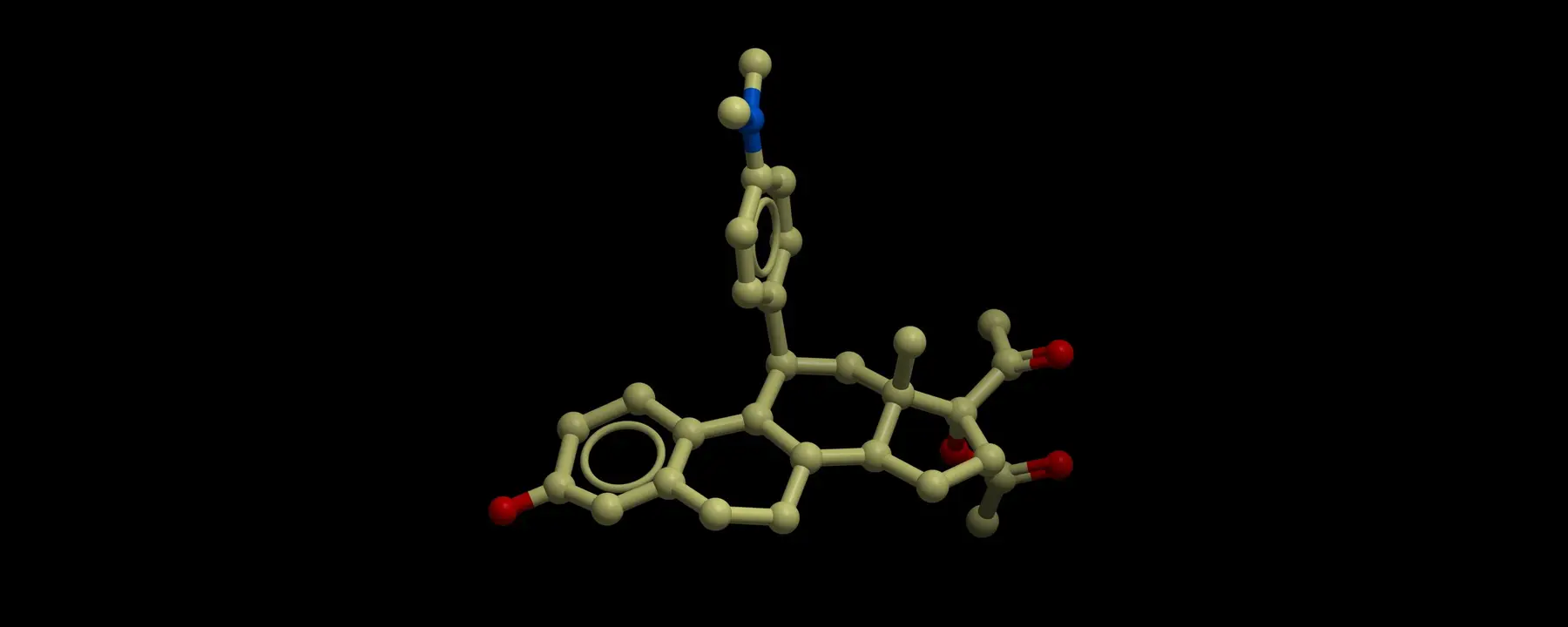Successful creation and synthesis of a versatile compound selective for progesterone to address unmet health needs of women
By creating therapeutic compounds that target multiple molecular targets, our scientists are able to target a wider variety of disease states, with the potential for development into valuable therapies that will improve the lives of more patients.
One such compound, ulipristal acetate, interacts with the receptor of the hormone progesterone. This compound was designed and synthesized in the 1990s by a team of our scientists as part of a multiyear research collaboration with the National Institute of Child Health and Human Development (NICHD).
Approval as an Emergency Contraceptive
Licensed to HRA Phamra in 2000, ulipristal acetate received approval for use as an emergency contraceptive throughout the European Union under the brand name ellaOne in 2009. The following year, the drug was approved by the U.S. Food and Drug Administration for use as a prescription-only emergency contraceptive under the brand name ella.
In a 2011 study, nearly half of pregnancies in the United States were unintended, with higher rates among women with lower education and low income, and the highest rates among teens younger than 15.
When used as directed, ulipristal acetate safely reduces the risk of pregnancy in women up to five days after unprotected intercourse or contraceptive failure. This offers women an additional method for avoiding unintended pregnancy, which is associated with an increased health risk for mother and baby.
A Potential Treatment for Millions of Women Suffering from Uterine Fibroids
HRA Pharma is now in the process of developing ulipristal acetate into a follow-on medication known as Esmya®, designed for the treatment of uterine fibroids, a disease with significant negative impact on women’s health, affecting over 40 million women of reproductive age.
Other potential applications for ulipristal acetate are currently under investigation.
- National Institute of Child Health and Human Development (NICHD)


